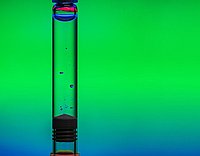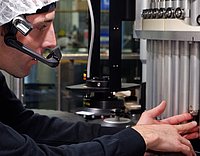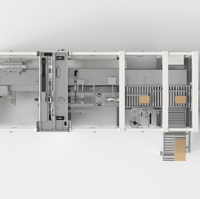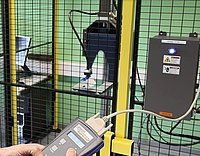Business benefits of MES
Over the past decades, we have learnt that virtually every pharma manufacturing operation – regardless of size, complexity and type of product –can benefit from adopting an integrated MES solution. According to a study by Werum among major pharma manufacturers, many Asian pharmaceutical companies – early adopters of MES systems – stated the following benefits:
Benefit 1: Digitize & automate manufacturing processes
MES helps you manage and maintain your processes more efficiently. The high right-first-time factor ensures that there is no material mix-up and that the right quantity of the correct material is charged to the process via barcode verification. The digitization of processes also enables production and quality assurance teams to work on the batch records in parallel. The MES system makes this possible by significantly improving operation visibility and providing an accurate real-time data access.
Benefit 2: Safeguard regulatory compliance
We all agree that data integrity is extremely important – especially when working in highly regulated industries. The ALCOA principle is an essential part of Good Manufacturing Practices (GMPs) where data must be attributable, legible (permanent), contemporaneous, original and accurate.
Managing these compliance requirements with a paperless manufacturing system ensures 100% adherence to ALCOA in batch records and equipment logbooks. It helps improve the justification quality for events and exceptions that often go unnoticed on paper. MES also helps reduce errors associated with Good Documentation Practice (GDP), missing entries and calculation errors which are frequently observed on paper batch recording.
Benefit 3: Improve manufacturing efficiency & productivity
It’s quite amazing to see the positive impact an MES system brings to the manufacturing shop floor. Typically, improvements are experienced in all areas. Here are some examples from our study:
- Increased space utilization
- Increased material retrieval time in the warehouse operation
- A high right-first-time factor eliminating the risk of material mix-up and verifier signatures traditionally required in weighing & dispensing
- Contemporaneous batch recording and automatic equipment logbooks in manufacturing and packaging areas assisting the operator to focus on value added activities with direct impact to product quality
- Batch record releases based on exceptions helping to speed up review and release times
- Moreover, an MES system also provides flexibility and scalability to contract manufacturers with large number of stock keeping units (SKUs). We will be further exploring this aspect in one of our future blog posts.
When taking a holistic view at the manufacturing shop floor operating on MES systems, we observed that pharma manufacturers can save costs and efforts and avoid risk while also achieving a faster time-to-market.
Benefit 4: Advance data analytics
We believe that data is going to emerge as a fundamental competitive advantage. Combined with our knowledge and expertise in the pharmaceutical and biotech industries, we are able to harness data, analytics and design providing a clear path for our customers to improve quality and performance. MES is a primary platform which stores all manufacturing-related data. Our Enterprise Manufacturing Intelligence (EMI) solutions use the data that is inside the organization and accurately understand the data patterns which our customers can exploit.
Case study: API yield increase in high value biotech
Earlier we started a pilot in the biotech space. A leading multinational pharma and life sciences company from Germany has commissioned Werum to integrate a prediction model for the optimal time to extract an API into a biopharmaceutical manufacturing process. The API is separated from undesired secondary components by means of an extraction process using chromatography columns in the downstream phase. Until now, this had been done by an experienced employee who decided on the start and end times of the extraction based on IPC data. From the history of this chromatography data, Werum generates a prediction model based on neural networks. The model predicts the optimal time to extract the API and will be simultaneously integrated into the process. The benefits for the pharma company are invaluable: through the process optimization, they can increase their product yield by about one percent of additional API!
Benefit 5: Enable Pharma 4.0
Whether or not they are already using MES – most companies are not fully aware of what state-of-the-art systems can do. Most MES currently on the market can manage today’s factory. Most can also handle some aspects of vertical and horizontal integration, mobile, cloud and analytics. However, for the Pharma 4.0 factory of the future, the specific capabilities for scaling and shifting to coordinate autonomous, decentralized networks of automated equipment collaborating with dynamic activity are of utmost importance. In this context, in-depth study is required to distinguish future-ready MES from others. The ability of some systems to handle not only operations but also analyses and coordination activities across the supply chain is remarkable.








